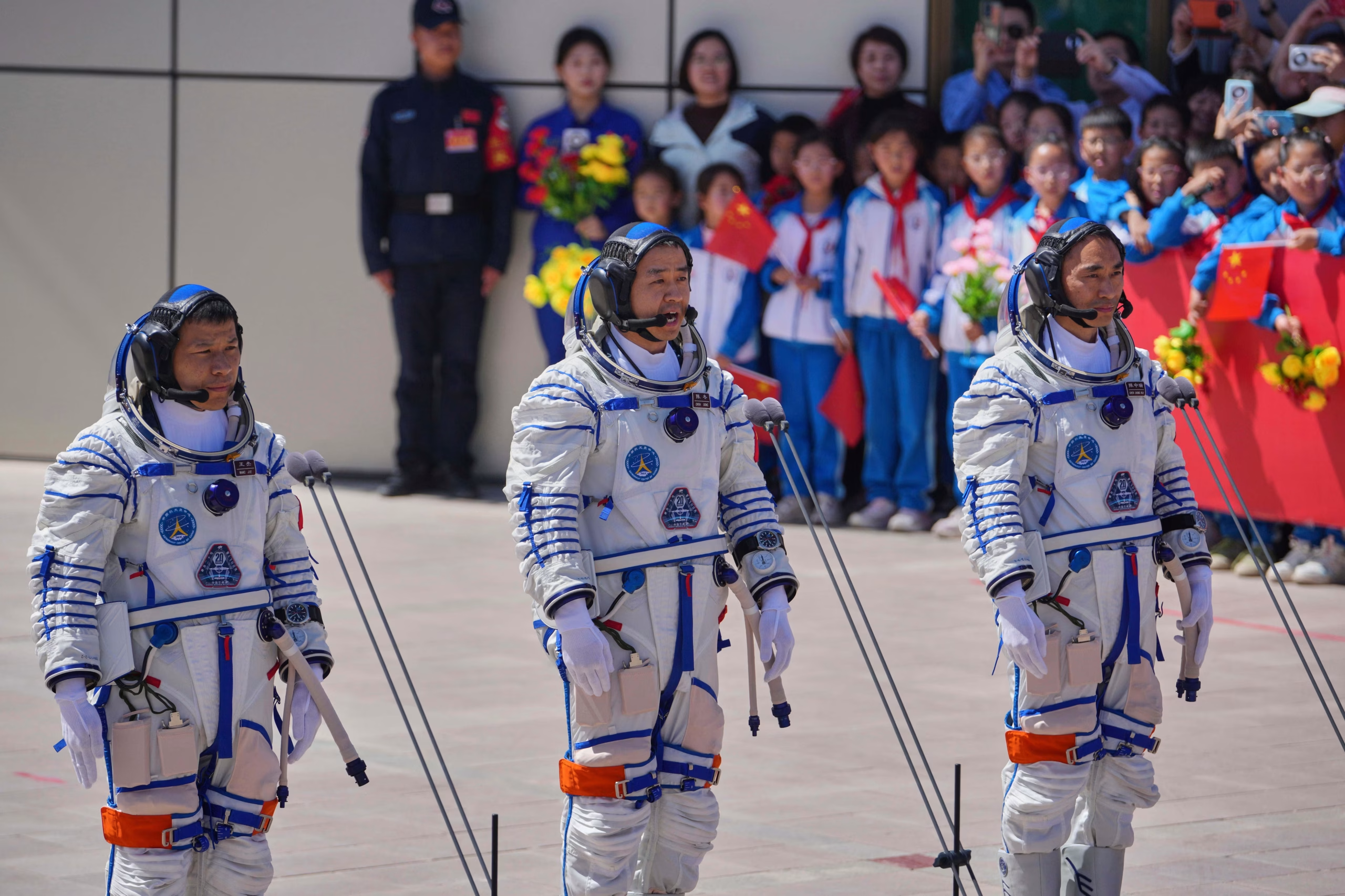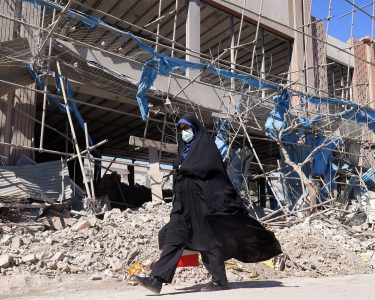Three Chinese astronauts landed back on Earth on Friday, according to state media, more than a week later than their scheduled landing, capping an extended stay in space after a suspected debris hit left their spaceship with a cracked window.
After the capsule hatch opened medical teams found that the astronauts were in good physical condition, Chinese state media outlet CCTV reported.
The crew of the Shenzhou-20 spaceflight had been due to finish their mission at China’s Tiangong space station last Wednesday; they’d even handed the keys to the space station to a new crew who had just arrived for their own six-month mission.
However, their departure was delayed after “a suspected impact from tiny space debris” damaged the Shenzhou-20 return capsule, Xinhua News Agency said. After a nine-day wait, the astronauts ultimately returned aboard the Shenzhou-21 spacecraft that brought the new crew to the station, according to the China Manned Space Agency (CMSA).
 Chen Zhongrui, a Shenzhou-20 astronaut, is carried out from the Shenzhou-21 spaceship’s return capsule after it touched down on Earth at the Dongfeng landing site in northern China’s Inner Mongolia Autonomous region on Friday, November 14. (Li Zhipeng/Xinhua/AP)
Chen Zhongrui, a Shenzhou-20 astronaut, is carried out from the Shenzhou-21 spaceship’s return capsule after it touched down on Earth at the Dongfeng landing site in northern China’s Inner Mongolia Autonomous region on Friday, November 14. (Li Zhipeng/Xinhua/AP)
“The path of humanity’s exploration of space is not smooth,” Chen Dong, one of the astronauts, told journalists in front of the capsule. “It is full of difficulties and challenges, and that is also why we choose to walk this path.”
“I’m very proud that we successfully completed the mission…We have finally made it home safely.”
The Shenzhou-20 return capsule suffered “a slight crack” in one of its windows, likely caused by the debris strike, making it unsafe for re-entry, the CMSA said. It will remain in orbit to support scientific experiments.
The Tiangong station is one of only two operating space stations in the world, alongside the International Space Station. Since it was completed in 2022, the biannual launches of China’s Shenzhou program have become a significant source of national pride.
China has recently made notable advances in space exploration, including breaking a long-held American record with a nine-hour spacewalk. The country also plans to open Tiangong to foreign astronauts for the first time, with a Pakistani astronaut expected to visit next year.
The Shenzhou-21 crew—now without a return spacecraft following the damage to Shenzhou-20—includes Wu Fei, the youngest Chinese astronaut ever sent to space at age 32.
 Astronaut Chen Dong, commander of the three-member Shenzhou-20 crew, is out of the Shenzhou-21 spaceship’s return capsule after it touched down on Friday. (Jiang Jurong/VCG/AP)
Astronaut Chen Dong, commander of the three-member Shenzhou-20 crew, is out of the Shenzhou-21 spaceship’s return capsule after it touched down on Friday. (Jiang Jurong/VCG/AP)
The Shenzhou-22 mission, scheduled for launch sometime next year, will include an astronaut who is expected to remain aboard the Tiangong space station for more than a year as part of a “long-duration residency experiment,” Xinhua reported.
China’s rapid development in space exploration has raised alarm bells in Washington, which is racing to put an astronaut on the moon again. The Trump administration placed bans on Chinese citizens with US visas participating in NASA programs.
The US space agency is familiar with the difficulties of retrieving astronauts who have been left in limbo. NASA astronaut Frank Rubio, for example, spent 371 days on the ISS — a US record — after a tiny piece of space debris struck his Russian Soyuz spacecraft and forced a monthslong extension to his trip. Roscosmos launched a replacement capsule that eventually carried Rubio and cosmonauts Sergey Prokopyev and Dmitri Petelin back to Earth.
Last year, NASA’s Butch Wilmore and Suni Williams saw their weeklong stay on the International Space Station stretch into a more than nine-month mission after their spacecraft malfunctioned during a test flight. They joined the ISS expedition crew and eventually returned home in March.
The two countries are also increasingly competing in the formation of new international space partnerships. The U.S.-led Artemis Accords, which outline principles for lunar exploration and cooperation, stand in contrast to the Chinese- and Russian-backed International Lunar Research Station, reflecting a growing divide in global space governance.
 Crew members of Shenzhou-20 and Shenzhou-21 signing documents for work handover on board the Tiangong space station on November 4, 2025. (CCTV)
Crew members of Shenzhou-20 and Shenzhou-21 signing documents for work handover on board the Tiangong space station on November 4, 2025. (CCTV)







